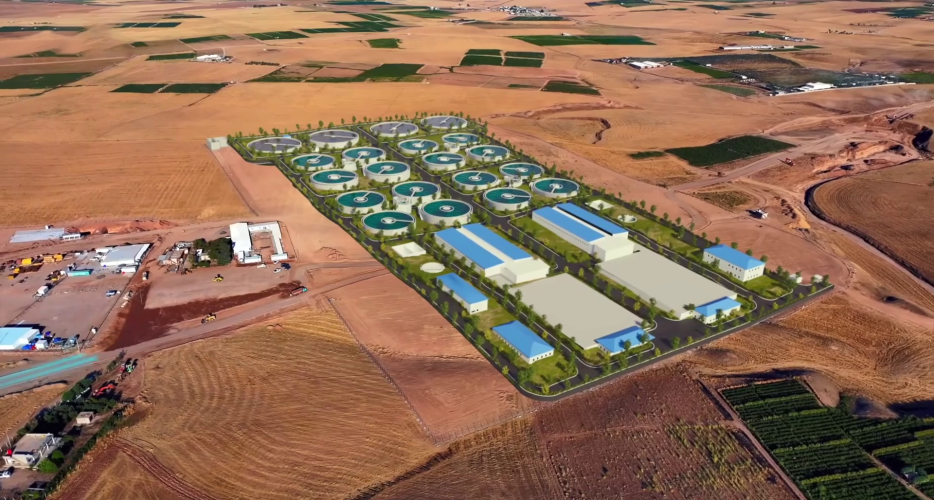Great Zab water to be delivered to Erbil; 'Erbil to survive water shortage for the upcoming 30 years'

Peregraf
Masrour Barzani laid the foundation stone for a vital water project aimed at preventing water shortages in Erbil over the next three decades.
The initiative aims to supply Half a million cubic meters of potable water to a population of 1.5 million individuals, adhering to international standards. This project involves extracting water from the Great Zab River at a rate of 20,000 to 21,000 cubic meters per hour. The water will be delivered in a clean and safe manner to the inhabitants of Erbil.
Each summer, Erbil experiences issues related to water scarcity. This year, residents in various neighborhoods of the city protested against the water shortages, expressing their dissatisfaction with the Kurdistan Regional Government (KRG) for its inability to address the issue.
The KRG prime minister claimed during the ceremony that this initiative ranks among the most essential and significant projects in the region. "It will provide a substantial supply of water to Erbil. Over the next three decades, Erbil will no longer experience water scarcity. I have urged that the local water infrastructure in the neighborhoods be restructured concurrently with this project to ensure that water is accessible to all areas of Erbil upon its completion," Barzani added.
The Great Zab, recognized as the largest tributary of the Tigris River, has its sources in the Hakkari and Van areas of Turkey, as well as in Urmia, Iran. It flows into the Kurdistan Region via the village of Jal, located to the north of Amedi District in the Dohuk Governorate. The river spans a total length of 393 kilometers before merging with the Tigris River to the south of Gwer.
The local firm Hemn Group will carry out the project, with Masrour Barzani praising the company's past projects for their quality and swift execution. The budget allocated for the project is $479 million, and it is expected to be finalized within a period of 550 days.
Masrour Barzani announced the initiation of a new water project aimed at supplying Qushtapa town and its neighboring villages with water sourced from the Little Zab. "The completion of these projects will result in the closure of hundreds of wells, thereby rejuvenating the groundwater," Barzani stated.
The Little Zab is a significant river located in the Kurdistan Region. It originates from the mountain range of Iranian Kurdistan, particularly from Mount Lahijan, which is situated to the west of Mahabad. The river enters the Kurdistan region via the Sulaymaniyah Governorate, where the Dokan Dam has been constructed along its path. Spanning a length of 400 kilometers, it ultimately flows into the Tigris River to the south of Makhmur.
KRG Prime Minister remarked that he has requested the relevant parties to initiate the implementation of the water recycling project at the earliest opportunity. He emphasized that this initiative aims to treat the sewage generated in Erbil, thereby mitigating environmental pollution and protecting groundwater. “The recycled water will be utilized for parks and green spaces”.